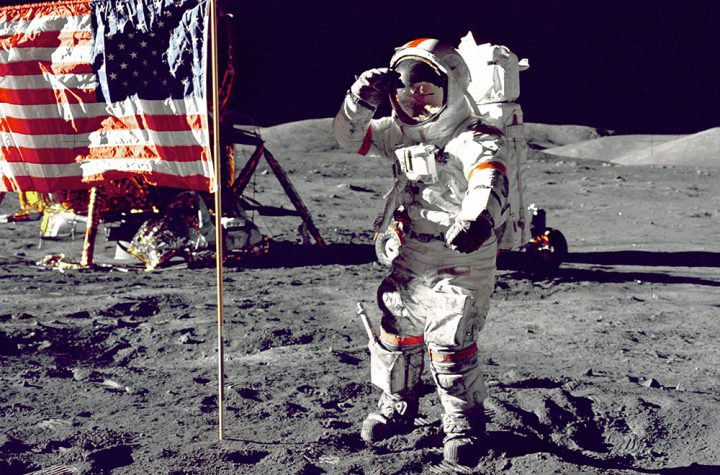
When futurists predict that technology X will be developed, there is a common reply from people who do not know the history of technology. The replies are variations of “Technology X will be developed after we solve Y”. Y can be another technology or a societal problem.
Ridiculous to Not Start Getting a Technology Win While X Remains Unsolved
People usually have liked saying we need to solve world poverty or world hunger before we get technology X. Solutions for those problems are more important for humanity but developing new technology are not slowing down the pace for addressing those problems. China started industrializing in a major way about 200 years after the US and UK.
Is it reasonable to demand Google should not develop its search engine until after the Department of Motor Vehicles solved its long waiting line problem?
Is it reasonable to demand that large companies should not upgrade their data centers until after vaccinations are provided to every child in Africa?
There are 7.7 billion people in the world. There will be people who get things first and people who get things last. There will be people who solve a problem first and people who solve a problem last.
70% of the US enrolls in college after high school. 49% graduate with a college degree. Should there be some restrictions on who is allowed to attend college until college enrollment reaches 100%?
One less problem for one person is progress. The fact that many others still have many problems should not limit each person getting their own solutions as fast as possible.
Public sanitation increased life expectancy by several years. Vaccines and antibiotics increased life expectancy by several years. AIDS drugs boosted life expectancy by several years for those with HIV. Should I not get new heart medicine until after everyone gets AIDS treatment?
The range of life expectancy for different people goes from about 50-90. Health is unequal. Access to technology is unequal.
Centuries to Millenia Delays in Solving Problems or Adopting Technology
In the 1880s, coal was first used to generate electricity for homes and factories. Whale oil and kerosene were burned for lighting lamps. Wood was used for cooking and heating. Wood was also used to power some steam engines. Coal is still the major source of power for the world.
There has been over a century of overlap where the world still uses a lot of wood and coal while at the same time oil, nuclear power and renewables are developed. The world’s main biofuel is still wood.
Petroleum did not pass coal as the dominant global energy source until the 1960s.
Here is the history of US energy from 1775.
The US is using a lot more natural gas than the rest of the world and the US transitioned in a major way decades before countries like China and other countries in Asia and Africa.
Nuclear fission power was first used for commercial power in 1956.
The first successful drug for the treatment of the disease AIDS was approved in 1987. In 2017, 21 Million people receive drug treatment for AIDS out of 37 million people with HIV. In 2017, 1.8 million people became newly infected, and 1 million died of HIV-related causes.
The antibiotic penicillin was developed in 1928. There are still countries in Africa that have poor medical treatment.
Public health and sanitation systems were first developed by the Ancient Romans. Romans had latrines and systems for delivering clean water. Flushable toilets were invented in 1596 by Sir John Harington, an English courtier and the godson of Queen Elizabeth I. The first public toilet was in 1852. In 2017, 2.0 billion people still do not have basic sanitation facilities such as toilets or latrines. 673 million still defecate in the open, for example in street gutters, behind bushes or into open bodies of water. At least 10% of the worlds population is thought to consume food irrigated by wastewater.
Technology development did not stop after ancient Rome developed aqueducts while we waited for the world to adopt public health and sanitation.
China mostly industrialized from 1980 to 2010. There are countries that still have not industrialized.
Africa is still adopting cellphones, the internet and bank or financial accounts.
Brian Wang is a prolific business-oriented writer of emerging and disruptive technologies. He is known for insightful articles that combine business and technical analysis that catches the attention of the general public and is also useful for those in the industries. He is the sole author and writer of nextbigfuture.com, the top online science blog. He is also involved in angel investing and raising funds for breakthrough technology startup companies.
He gave the recent keynote presentation at Monte Jade event with a talk entitled the Future for You. He gave an annual update on molecular nanotechnology at Singularity University on nanotechnology, gave a TEDX talk on energy, and advises USC ASTE 527 (advanced space projects program). He has been interviewed for radio, professional organizations. podcasts and corporate events. He was recently interviewed by the radio program Steel on Steel on satellites and high altitude balloons that will track all movement in many parts of the USA.
He fundraises for various high impact technology companies and has worked in computer technology, insurance, healthcare and with corporate finance.
He has substantial familiarity with a broad range of breakthrough technologies like age reversal and antiaging, quantum computers, artificial intelligence, ocean tech, agtech, nuclear fission, advanced nuclear fission, space propulsion, satellites, imaging, molecular nanotechnology, biotechnology, medicine, blockchain, crypto and many other areas.





More Stories
Justice Rajiv Shakdher also asked the media houses AGR Outlier Media Pvt Ltd. and Bennett Coleman and Company Ltd. to ensure that no defamatory content is uploaded on social media platforms or displayed on their channels.
Two people have become the first passengers on a Hyperloop, a technology considered to be the future of high-speed ground transport.